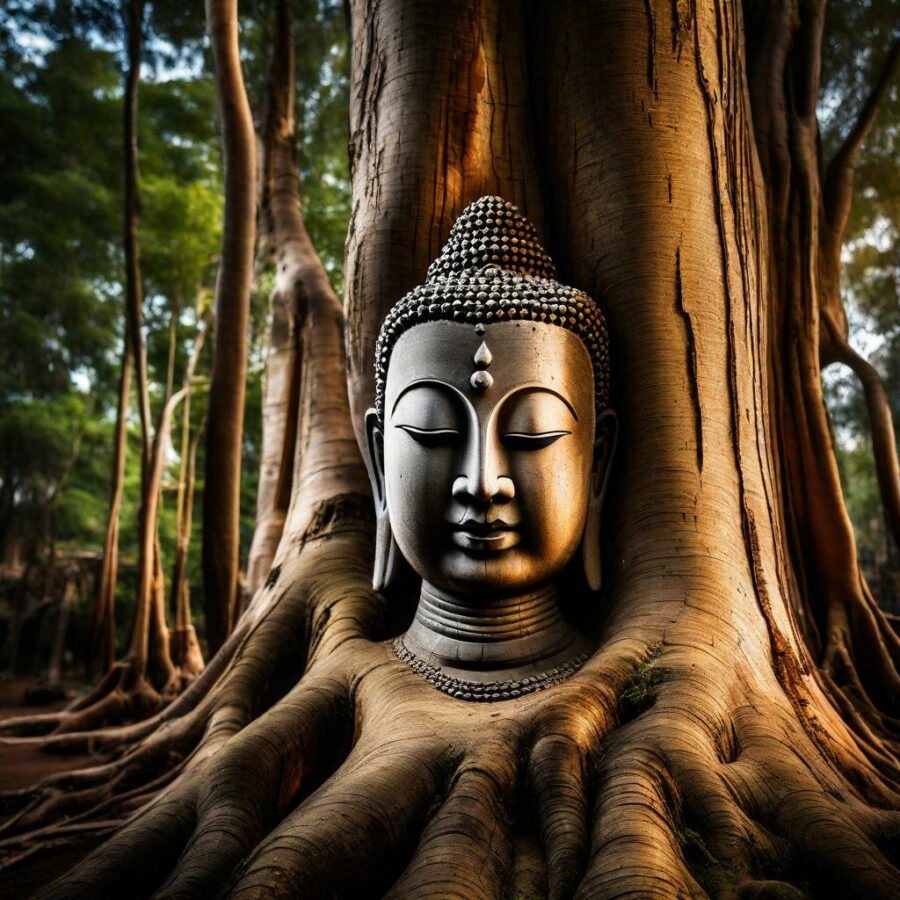Observing the Three Marks of Existence, or Tilakkhana, involves cultivating mindfulness and insight through direct experience.
Here’s how one might practice observing these characteristics within all things, including inner experiences and thoughts:
- Impermanence (Anicca):
- Outer World: Direct your attention to the external world, such as observing the changing nature of the environment, seasons, or people. Notice how nothing remains static.
- Inner World: Observe the sensations within your body, the rising and falling of your breath, and the constant flux of thoughts and emotions. Pay attention to the changing nature of your inner experiences.
- Suffering or Unsatisfactoriness (Dukkha):
- Outer World: Reflect on the unsatisfactory nature of worldly experiences, such as the fleeting nature of pleasure or the inevitable challenges and difficulties in life.
- Inner World: Acknowledge the moments of discontent, stress, or dissatisfaction within your mind. Observe how attachment and aversion contribute to a sense of suffering.
- Non-Self (Anatta):
- Outer World: Contemplate the idea that everything in the external world lacks a permanent, unchanging essence. Recognize the interdependence and interconnectedness of all phenomena.
- Inner World: Investigate the sense of “I” or “self” within your thoughts and emotions. Explore whether there is a permanent, unchanging core to your identity. Observe thoughts arising and passing without identifying with them as a fixed self.

Practical Steps:
- Mindful Awareness: Cultivate present-moment awareness by bringing attention to your experiences without judgment or attachment.
- Meditation: Practice mindfulness meditation to observe the breath, bodily sensations, and mental phenomena. This helps develop the ability to notice impermanence, unsatisfactoriness, and non-self.
- Reflection: Regularly reflect on the transient, unsatisfactory, and non-self nature of experiences. This can be done through journaling or contemplative practices.
- Daily Life Integration: Extend your practice into daily life by observing impermanence, unsatisfactoriness, and non-self in routine activities, interactions, and thoughts.
By consistently applying these principles, practitioners deepen their understanding of Tilakkhana, fostering wisdom and insight into the true nature of existence according to Buddhist teachings.




